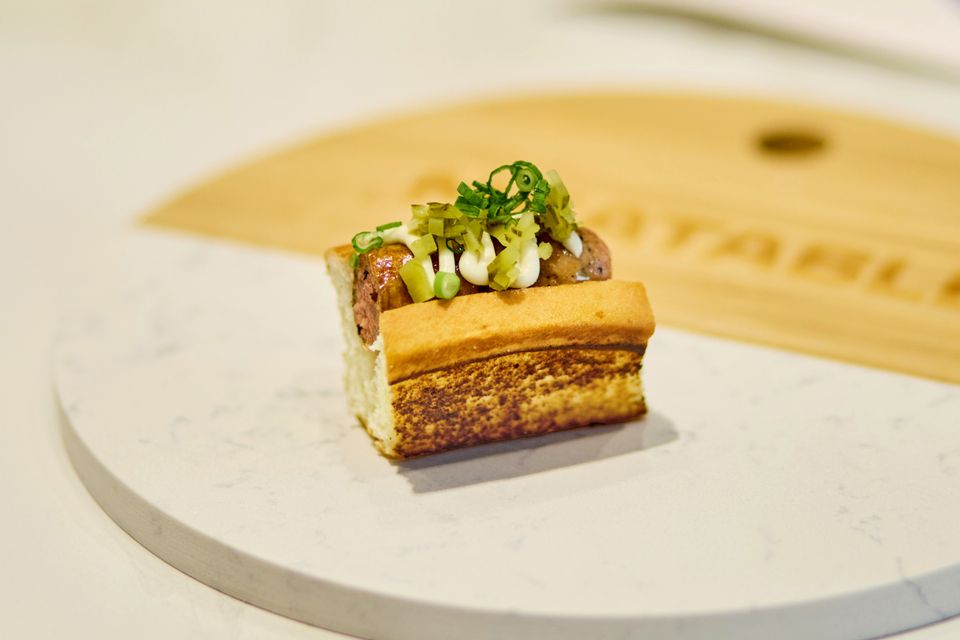Meatable, a company from Leiden, has a scoop with the first cultured meat tasting in Europe.
Last year, the Netherlands had the European first with the approval of tastings for cultured meat, a milestone in the food industry. An independent committee, consisting of a toxicologist, microbiologist, doctor and ethicist, was appointed by the government to assess applications. Start-up Meatable from Leiden was the first company to submit an application and after a thorough evaluation, they are also the first Dutch cultured meat company to receive permission for a cultured meat tasting.
The first tasting
The tasting took place in Meatable's new building, located in the Leiden Bio Science Park with a view of the laboratory where the cultured meat process takes place. Selected subjects were given two snacks to taste blind: one completely plant-based and the other with 30 percent cultured meat. Before the tasting, participants had to sign a document stating that they were participating at their own risk and voluntarily.
The cultured meat sausage, seemingly inconspicuous on purpose according to founder Krijn de Nood, was tested for its ability to be indistinguishable in smell and appearance from a traditional pork sausage. However, the tasters only noticed a positive difference with the vegetable variant. The cultured meat made the sausage a bit fattier, which better concealed the typical texture and taste of a vegan sausage.
What is cultured meat?
The cultured meat in the sausage comes from pork fat grown from stem cells, and it is mixed with ingredients that are also found in existing plant-based meat substitutes to maintain structure and taste. This innovative process makes it possible to produce thousands of kilos of meat with just one animal. Determining the right percentage of cultured meat required experimentation, as both too much and too little affect taste, texture and price.
Co-founder Daan Luining emphasizes that a percentage of 30 percent cultured meat is optimal. For Meatable, taste and price are the most important considerations. The aim is to make the taste of cultured meat equal to that of conventional meat, while the price remains comparable to organic meat.

